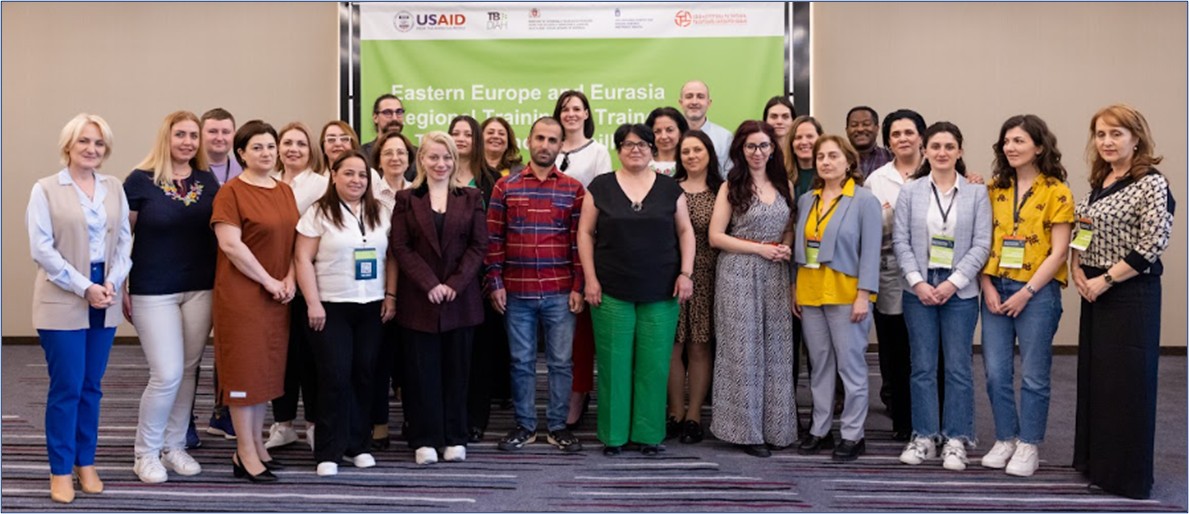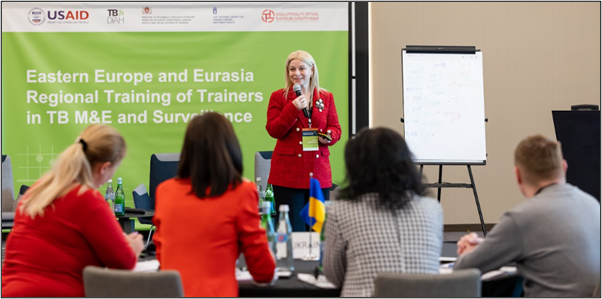May 1–5, 2023
Tbilisi, Georgia

The Tuberculosis Data, Impact Assessment and Communications Hub (TB DIAH) project, funded by the United States Agency for International Development (USAID), works to improve the collection, analysis, and use of TB (tuberculosis) data throughout the world. In the Eastern Europe and Eurasia (EEE) region, TB DIAH is accomplishing this objective by using a Center of Excellence (COE) model as a means of providing technical assistance. Founded in Tbilisi, Georgia, in May 2022, Georgia’s National Center for Disease Control and Public Health (NCDC) and the National Center for Tuberculosis and Lung Disease (NCTLD) are leading the virtual COE’s efforts to improve and harness existing TB data, expand knowledge sharing, and promote best practices in TB monitoring and evaluation (M&E) and surveillance in EEE. The COE serves as a hub for TB DIAH support in the region and ensures synergy and effective use of resources.

To provide a foundation for critically reviewing, understanding, and using routine TB surveillance data through practical examples of data analysis, interpretation, and visualization at sub-national and national levels, TB DIAH, through the COE framework, hosted an international “Regional Training of Trainers in TB M&E and Surveillance Capacity Strengthening.” The in-person training took place in Tbilisi, Georgia, from May 1–5, 2023.
Twenty-eight participants from four EEE countries (Armenia, Georgia, Moldova, and Ukraine) attended a mix of presentations and individual and group activities. Together, COE and TB DIAH staff trained national TB program representatives and professionals affiliated with M&E and surveillance on a variety of topics. These included TB epidemiology in the EEE region; M&E fundamentals; USAID’s Performance-based M&E Framework; data collection, quality, and analysis, including cascade analysis and root cause analysis; visualizing, communicating, and using M&E findings for decision making; understanding TB hotspot mapping; supportive supervision; and stakeholder engagement. The training methodology was very much participatory and anchored to the fundamental principles of adult education, fostering the sharing of peer-to-peer knowledge, and practical experience from the field.
 Country teams were given the opportunity to draft their own national-level training plans. TB DIAH provided the participants with the necessary tools, templates, and technical assistance to identify their target audience, training curriculum, location(s), budget, timeline, and other logistics.
Country teams were given the opportunity to draft their own national-level training plans. TB DIAH provided the participants with the necessary tools, templates, and technical assistance to identify their target audience, training curriculum, location(s), budget, timeline, and other logistics.
The COE-led training of trainers resulted in a cadre of master trainers in the EEE region who are competent in TB M&E and surveillance and able to successfully deliver tailored training programs in their respective countries.
USAID has a long history of partnering with EEE countries to advance the prospects for peace and foster good governance and prosperity. Because infectious diseases pose a threat to peace and security, addressing TB in the region and strengthening the capacity of TB professionals to collect, analyze, and use TB data to improve TB surveillance and program management brings the region closer to global health security and ending TB.
